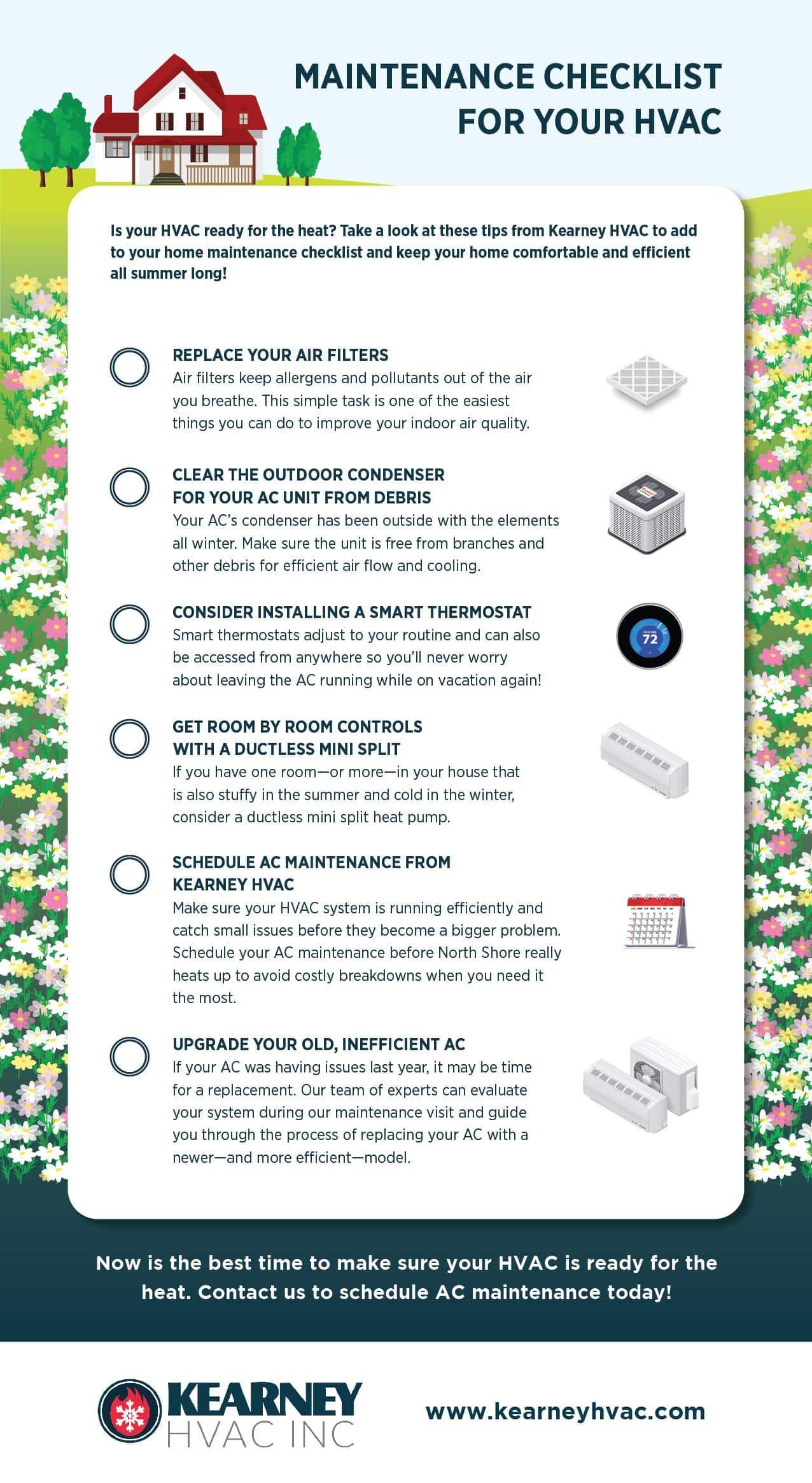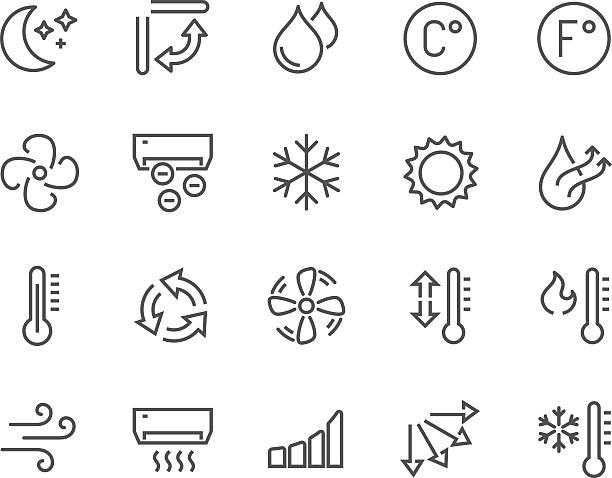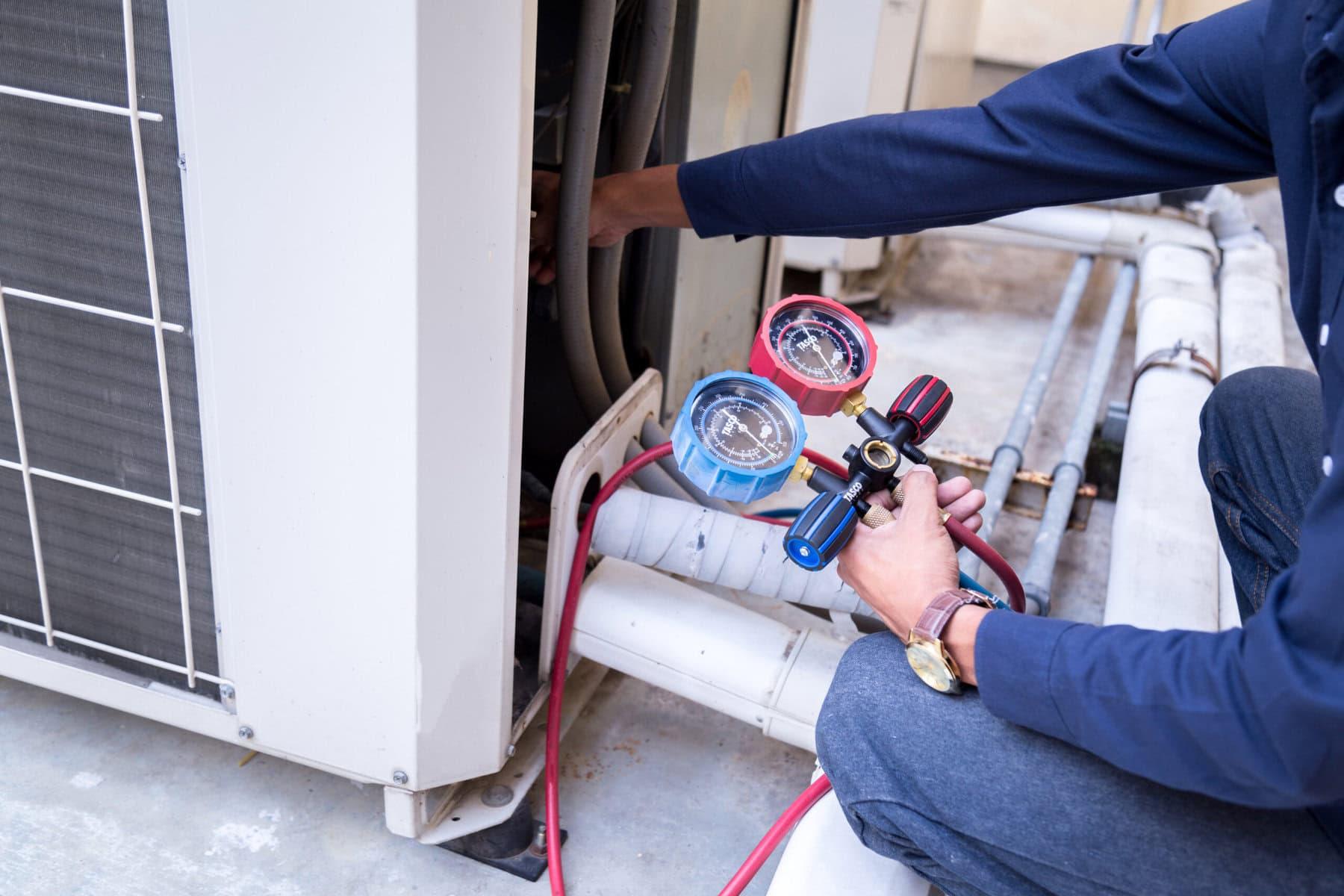When Houston’s relentless heat and humidity push your air conditioning system to its limits, the difference between comfort and crisis often comes down to one factor: proper maintenance. With summer temperatures regularly exceeding 95°F and humidity levels that can make 85°F feel like 100°F, your AC unit works harder here than almost anywhere else in the country. Yet surprisingly, 42% of homeowners admit they never schedule professional AC maintenance until something breaks, according to Energy Star data.
This comprehensive AC maintenance checklist isn’t just another generic guide—it’s specifically tailored for Houston’s unique climate challenges, from our coastal humidity to the sudden temperature swings that can stress even the newest systems. Whether you’re protecting a brand-new installation or extending the life of an aging unit, following this checklist can mean the difference between a system that lasts 10 years and one that serves you reliably for 15-20 years.
Why AC Maintenance Matters More in Houston Than Anywhere Else
Houston’s subtropical climate creates a perfect storm of conditions that accelerate AC wear and tear. Your system likely runs 8-10 months per year, compared to just 3-4 months in northern states. This extended runtime, combined with our notorious humidity levels averaging 75% year-round, means your AC faces challenges that would destroy unmaintained systems within years.

The Department of Energy reports that neglected AC systems consume up to 25% more energy while delivering 30% less cooling capacity. In Houston terms, that translates to an extra $40-60 monthly on your energy bills during peak summer months. More critically, the average AC repair cost in Houston ranges from $150 to $650, while preventive maintenance typically costs just $75-150 per visit.
“In my 20 years servicing Houston homes, I’ve seen properly maintained systems outlast neglected ones by 7-10 years consistently,” notes James Rodriguez, NATE-certified HVAC technician. “The salt air from the Gulf, combined with our humidity, creates corrosion issues you simply don’t see in drier climates.”
Monthly AC Maintenance Tasks Every Houston Homeowner Can Handle
Filter Replacement: Your First Line of Defense
In Houston’s dusty, pollen-heavy environment, your AC filter works overtime. While manufacturers typically recommend changing filters every 90 days, Houston residents should check monthly and replace every 30-60 days during peak season. A clogged filter forces your system to work 15-20% harder, according to ASHRAE studies.
- Check your filter on the first day of each month
- Hold it up to light—if you can’t see through it clearly, replace it
- During spring pollen season (March-May), consider weekly checks
- Upgrade to MERV 8-11 filters for better allergen control without restricting airflow
- Mark replacement dates on your calendar or set phone reminders
Outdoor Unit Inspection
Your outdoor condenser unit battles Houston’s elements daily. Monthly visual inspections can catch problems before they escalate into expensive repairs.
- Clear debris, leaves, and grass clippings from around the unit (maintain 2-foot clearance)
- Check for visible damage from storms or falling branches
- Listen for unusual sounds like grinding, squealing, or rattling
- Ensure the unit sits level—Houston’s clay soil shifts can cause tilting
- Verify that sprinkler systems aren’t hitting the unit directly
Seasonal AC Maintenance Requirements for Houston’s Climate
Spring Preparation (March-April)
Spring in Houston brings unique challenges with pollen counts among the nation’s highest and humidity levels already climbing. This season demands specific attention to prepare your system for the marathon ahead.

Professional technicians recommend these spring essentials:
- Deep clean or replace filters after pollen season peaks
- Test thermostat calibration and replace batteries
- Clean condenser coils with appropriate coil cleaner
- Check refrigerant levels (low levels indicate leaks requiring professional repair)
- Inspect and clean condensate drain lines to prevent summer clogs
- Test system cycling and temperature differential
Summer Optimization (May-September)
During Houston’s brutal summer months, your AC runs nearly continuously. These maintenance steps ensure peak performance when you need it most:
- Monitor energy bills for sudden increases indicating efficiency loss
- Check supply vents for consistent airflow and temperature
- Inspect insulation on refrigerant lines for damage
- Clean return air grilles monthly
- Verify condensate pump operation (if applicable)
- Schedule mid-summer professional inspection for systems over 10 years old
Fall Transition (October-November)
As temperatures finally moderate, fall provides an opportunity for recovery maintenance and winter preparation:
- Clean evaporator coils accessible from indoor unit
- Lubricate fan motors and bearings (if not sealed)
- Tighten electrical connections
- Test heating function before first cold snap
- Inspect ductwork for leaks or damage
- Consider professional duct cleaning if not done in 3-5 years
Professional AC Maintenance: When to Call the Experts
While DIY maintenance extends system life, certain tasks require professional expertise and specialized equipment. The EPA recommends annual professional maintenance for all central air systems, but Houston’s demanding climate often warrants bi-annual service.
Critical Professional Services
| Service | Frequency | Why It Matters in Houston | Average Cost |
|---|---|---|---|
| Refrigerant Check | Annually | High runtime increases leak risk | $100-200 |
| Coil Deep Cleaning | Annually | Salt air and humidity cause buildup | $75-150 |
| Electrical Inspection | Bi-annually | Humidity corrodes connections | $50-100 |
| Duct Inspection | Every 2-3 years | Moisture promotes mold growth | $300-500 |
| Blower Motor Service | Annually | Continuous operation causes wear | $75-125 |
“Houston homeowners who invest in bi-annual professional maintenance see an average 23% reduction in repair costs over the system’s lifetime,” reports the Texas Air Conditioning Contractors Association. “More importantly, they experience 65% fewer emergency breakdowns during peak summer heat.”
Warning Signs Your AC Needs Immediate Attention
Even with regular maintenance, Houston’s extreme conditions can cause unexpected issues. Recognizing these warning signs prevents minor problems from becoming major failures:

Temperature and Performance Issues
- Indoor temperature varies more than 3°F from thermostat setting
- Some rooms stay warm while others cool properly
- System runs continuously without reaching set temperature
- Frequent cycling on and off (short cycling)
- Weak airflow from vents despite clean filter
Physical and Sensory Warning Signs
- Ice formation on indoor or outdoor coils
- Water pooling around indoor unit
- Unusual odors (musty, burning, or chemical)
- Grinding, squealing, or banging noises
- Visible rust or corrosion on components
- Circuit breaker trips when AC runs
Energy Efficiency and Cost Savings Through Proper Maintenance
The U.S. Department of Energy confirms that proper AC maintenance can reduce energy consumption by 5-15%. In Houston, where the average home spends $2,400 annually on cooling, that translates to $120-360 in yearly savings.
Maintenance ROI Breakdown
Consider this real-world Houston scenario: A typical 3-ton AC system serving a 2,000 square foot home:
- Annual professional maintenance cost: $300-400
- DIY supplies (filters, cleaners): $100-150
- Total annual maintenance investment: $400-550
- Average energy savings: $240-360
- Avoided repair costs: $200-400 annually
- Extended system lifespan value: $400-600 per year (based on 5-year extension)
- Net annual benefit: $640-910
Houston-Specific AC Challenges and Solutions
Coastal Corrosion Prevention
Houston’s proximity to the Gulf Coast means salt-laden air accelerates metal corrosion. Aluminum and copper coils are particularly vulnerable, with untreated systems showing significant degradation within 5-7 years.
Prevention strategies include:
- Apply anti-corrosion coating to coils every 2 years
- Install coil guards for additional protection
- Rinse outdoor unit quarterly with fresh water (power off first)
- Consider upgrading to corrosion-resistant “Gold Fin” or “Blue Fin” coils
Humidity Management
Houston’s average 75% humidity doesn’t just make you uncomfortable—it forces your AC to work harder removing moisture from the air. Proper maintenance ensures optimal dehumidification:
- Keep evaporator coils clean for maximum moisture removal
- Ensure proper refrigerant charge for efficient dehumidification
- Check that your system doesn’t short-cycle, preventing proper moisture removal
- Consider adding a whole-house dehumidifier for extreme humidity days
- Install a programmable thermostat with humidity control
Creating Your Personalized AC Maintenance Schedule
Every Houston home has unique AC maintenance needs based on factors like system age, usage patterns, and environmental conditions. Here’s how to create your customized schedule:

For New Systems (0-5 years)
- Monthly: Filter checks and outdoor unit inspection
- Quarterly: Clean vents and check drainage
- Annually: Professional tune-up and coil cleaning
For Mid-Life Systems (6-10 years)
- Monthly: Filter replacement and performance monitoring
- Bi-monthly: Coil inspection and cleaning
- Bi-annually: Professional maintenance and part inspection
For Aging Systems (11+ years)
- Bi-weekly: System performance checks during peak season
- Monthly: Comprehensive DIY maintenance
- Quarterly: Professional inspection and service
- Consider AC replacement evaluation at 15 years
Indoor Air Quality and AC Maintenance
Your AC system does more than cool—it’s your primary defense against Houston’s outdoor air pollutants. The American Lung Association ranks Houston among the top 25 most polluted cities for ozone, making indoor air quality maintenance crucial.
Essential air quality maintenance steps:
- Upgrade to HEPA filtration for allergy sufferers
- Schedule annual duct cleaning to remove accumulated contaminants
- Install UV lights in air handlers to prevent mold growth
- Monitor indoor humidity levels (maintain 30-50%)
- Consider professional air quality testing
Common AC Maintenance Mistakes Houston Homeowners Make
Even well-intentioned maintenance efforts can backfire without proper knowledge. Avoid these costly mistakes:
Over-restricting Airflow
Using filters with MERV ratings above 13 in standard residential systems restricts airflow, causing increased energy use and potential compressor damage. Stick to MERV 8-11 unless your system specifically supports higher ratings.
Closing Too Many Vents
Closing more than 20% of your supply vents creates pressure imbalances that reduce efficiency and can damage your blower motor. Instead, use zoning systems or ductless units for targeted cooling.
Ignoring Thermostat Placement
Thermostats near windows, doors, or heat sources provide false readings, causing your system to cycle incorrectly. Ensure your thermostat is centrally located away from direct sunlight and heat sources.
Power Washing Condenser Coils
High-pressure water can bend delicate aluminum fins, reducing efficiency by up to 30%. Use a gentle stream and coil-specific cleaners instead.

Frequently Asked Questions About AC Maintenance in Houston
How often should I schedule professional AC maintenance in Houston?
Due to Houston’s extended cooling season and high humidity, we recommend professional maintenance twice yearly—once in spring before peak cooling season and again in fall. Systems over 10 years old may benefit from quarterly professional inspections.
What’s the average lifespan of an AC system in Houston?
With proper maintenance, AC systems in Houston typically last 12-15 years, though well-maintained units can reach 20 years. Without maintenance, expect just 8-10 years due to our demanding climate.
Can I perform AC maintenance myself, or should I always hire professionals?
Basic maintenance like filter changes, debris removal, and visual inspections are perfect DIY tasks. However, refrigerant handling, electrical work, and deep coil cleaning require professional expertise and specialized equipment for safety and effectiveness.
How much can I save on energy bills with regular AC maintenance?
The Department of Energy estimates 5-15% savings, but Houston homeowners often see 20-25% reductions due to our extreme runtime demands. That’s potentially $480-600 annually for average Houston homes.
What’s included in a professional AC tune-up?
Professional tune-ups typically include refrigerant level checks, coil cleaning, electrical connection tightening, thermostat calibration, blower motor inspection, condensate drain clearing, and overall system performance testing. Quality services also include detailed inspection reports and maintenance recommendations.
Should I buy a maintenance plan or schedule service as needed?
Maintenance plans typically save 15-20% over individual service calls and often include priority emergency service—crucial during Houston’s summer heat waves. Plans also help ensure you don’t forget critical maintenance timing.
How do I know if my AC needs repair or just maintenance?
Maintenance is preventive and keeps systems running efficiently. Repairs address specific problems like refrigerant leaks, compressor issues, or electrical failures. If your system cools poorly, makes unusual noises, or trips breakers, you need professional AC repair rather than routine maintenance.
Conclusion: Your AC Maintenance Action Plan

Proper AC maintenance in Houston isn’t optional—it’s essential for survival in our challenging climate. By following this comprehensive checklist, you’re not just maintaining equipment; you’re protecting your investment, ensuring your family’s comfort, and potentially saving thousands in premature replacement costs.
The key takeaways every Houston homeowner should remember:
- Change filters monthly during cooling season, not quarterly as suggested in other climates
- Schedule professional maintenance twice yearly, not just annually
- Address humidity control as aggressively as temperature control
- Monitor for coastal corrosion and treat preventively
- Never ignore warning signs—Houston’s heat turns small problems into emergencies quickly
Remember, the average AC replacement in Houston costs $4,500-7,500, while annual maintenance runs just $400-550. That’s less than 10% of replacement cost to potentially double your system’s lifespan.
Take action today: Don’t wait for the next heat wave to discover your AC needs attention. Contact 75 Degree AC at (713) 598-2737 to schedule your professional maintenance service. Our certified technicians understand Houston’s unique challenges and provide the thorough, honest service your system deserves. Visit our AC maintenance page to learn more about our comprehensive maintenance plans designed specifically for Houston homes.
Your comfort tomorrow depends on the maintenance you schedule today. Make AC maintenance a priority, and your system will reliably deliver the cool, comfortable home you deserve through Houston’s toughest weather.
